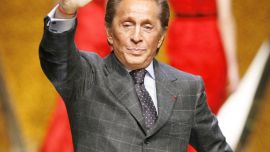Presidents of Mercosur countries will gather in Santa Fe for their semesterly summit Wednesday, euphoric from the successful signing of a trade deal with the European Union (EU) creating one of the world’s biggest markets.
“This will be a congratulatory summit,” sources in the Brazilian government said which will take over the position of rotating leader of the group from Argentina. The group also includes Uruguay and Paraguay.
Riding the high of the agreement announced two weeks ago in Brussels, the South American group hopes to sign a similar deal with the European Free Trade Association (EFTA) next month and plans to pursue others with Canada, Singapore and South Korea.
At the gathering, leaders hope to show the beginning of a “new Mercosur” and make the trade bloc function more smoothly by lowering the common external tariff and eliminating the ability of any country to a block bilateral trade agreements made by an individual member of Mercosur according to group sources.
Another sign of regional integration, the charge for "roaming", a fee for international calls from mobile phones, will be removed within the region, the sources indicated.
Participants in the summit will also discuss the crisis in Venezuela, a country which separated from the group in 2017.
Also present at the summit will be Bolivian President Evo Morales and Chilean President Sebastián Piñera whose government presides of the Pacific Alliance, another trade group.
“A beautiful wave of trade”
The EU-Mercosur deal was achieved after 20 years of negotiations and at a time when Argentina and Brazil – the two largest economies in Mercosur and South America – are led by Presidents who are more economically liberal than their predecessors.
“All the boats are riding on top of a beautiful wave of trade,” Brazil’s special secretary for foreign trade and one of the negotiators of the EU-Mercosur deal Marcos Troyjo said.
The accord was seen as a transatlantic response to the protectionist tendencies of US president Donald Trump.
This new liberal consensus between Brazil and Argentina has even helped the leftist government of Uruguay which for years sought a more open Mercosur but continuously clashed with its two larger, more reluctant partners. The Argentina and Brazilian delegations had “more pro-agreement proclivities than in previous negotiations” according to Uruguayan foreign minister Rodolfo Nin Novoa. Brazilian negotiators “even helped us out on a few matters,” he added.
The agreement between the two groups would give rise to a market of 780 million consumers which would make up a quarter of global GDP. It is the largest agreement with another bloc to be achieved by the EU and the first with Mercosur since it was created in 1991.
Once it is put in place, Mercosur will gradually eliminate 91 percent of tariffs on EU products over the next 15 years and the EU will eliminate 92 percent of its tariffs on Mercosur products over the course of 10 years.
- TIMES/AFP


















Comments